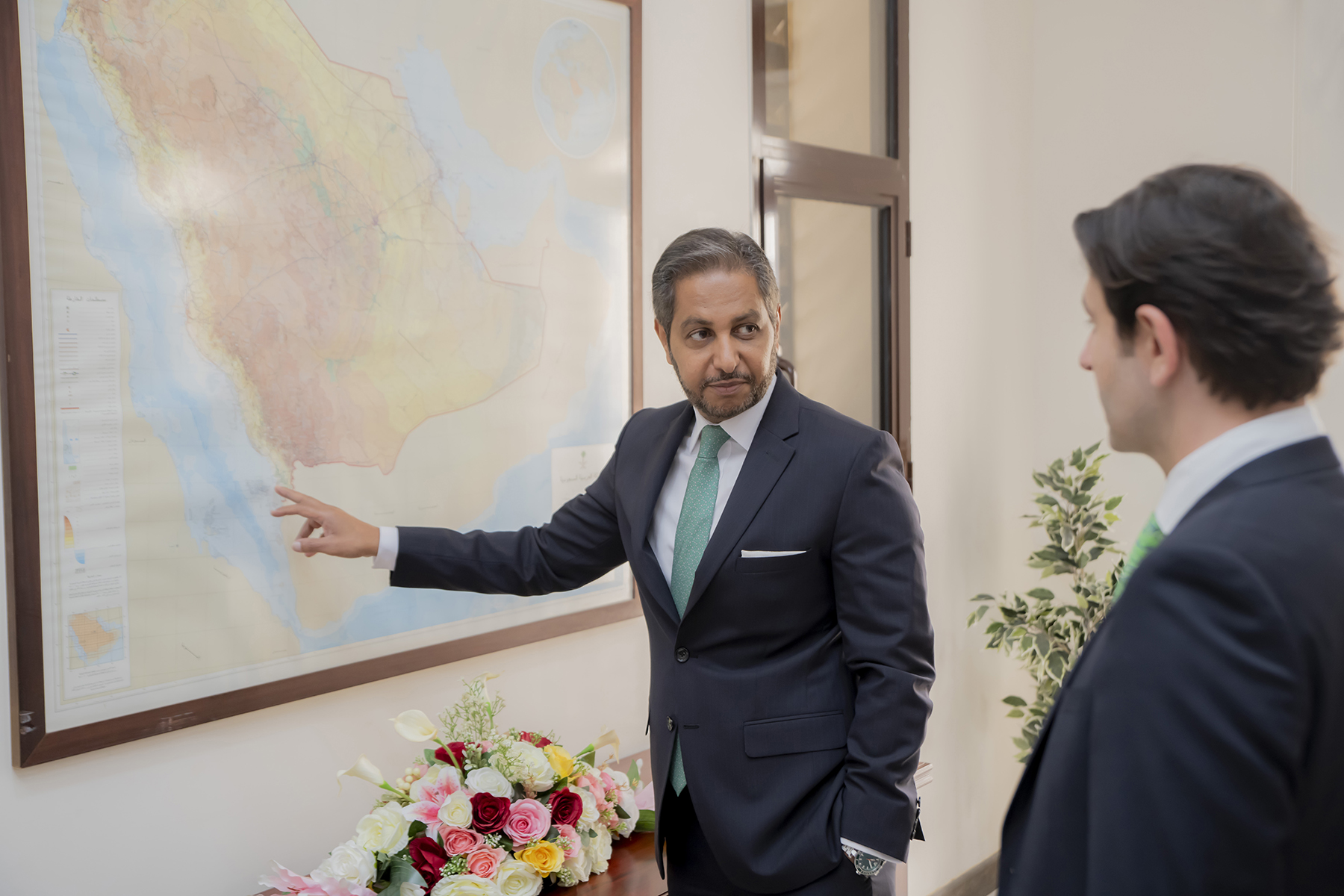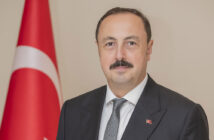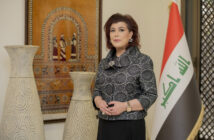Ambassador of Djibouti and the Dean of Diplomatic Corps
How do you find a win-win strategy to support and represent the interests of Djibouti, Saudi Arabia, and the entire Diplomatic Corps?
My first duty is to be the Ambassador of Djibouti to Saudi Arabia and serve my people and the people of Saudi Arabia to uplift the core values of diplomacy. On the other hand, I serve as Dean to over 120 embassies throughout the Kingdom, which is quite a challenge given the pace of development of Saudi Arabia and the growing importance of Riyadh as one of the leading capitals worldwide. One of the key approaches to maintaining balance and achieving a win-win strategy is the wise and well-organized coordination of tasks, responsibilities, and priorities. In addition, I must state and praise the level of trust that has been developed among the staff of the Diplomatic Corps with the heads of missions and ambassadors, the Diplomatic Quarter authority, as well as the Ministry of Foreign Affairs of Saudi Arabia.
This trust allows me, as dean and ambassador, to smoothly manage and carry out current activities, as well as look to the future for new horizons that can contribute not only to bilateral relations between Saudi Arabia and Djibouti but also to multilateral diplomacy. As a result of this win-win strategy, a number of cultural, culinary, educational, and artistic events have been organized to promote intercultural exchange and bring people from different backgrounds together in one place, the Diplomatic Quarter, the hub of diplomacy and statesmanship.
How has your perception of diplomacy and foreign policy changed over these nearly two decades of service in the Diplomatic Quarter?
Life flows and changes by itself from day to day, taking on new shapes in everyday life, work, education, leadership, and foreign policy. Consequently, the concept of diplomacy is changing to reflect global changes. Similarly, by being tied to the core values of diplomacy, the lives of diplomats, their duties, and their perceptions are transformed, not only in Saudi Arabia but throughout the world.
One of the best examples of this transformation can be found in the lives and activities of foreigners and expatriates in Saudi Arabia. As diplomats, councils, heads of missions, and attachés became more accessible to the public in a way that had not been the case in the past, a wider range of exceptional endeavors and projects were developed and implemented. Thus, for the first time in hundreds of years of diplomatic history, embassies have moved beyond official duties, such as advising the public on travel or visa matters. This is the simplest yet most compelling example of how diplomacy has been transformed to be closer to the community and help people come together. Moreover, diplomacy has been elevated by the speed of information-sharing capabilities, which also has a great influence on the change of diplomacy.
As an ambassador with over twenty years of experience and a leader in my field, I believe that the best thing diplomats can do is to adapt to this new reality and make the most of it. Given the success of the Diplomatic Quarter and its vibrant and thriving life, I can confidently say that the concept of diplomacy has transformed for a better world, more united and receptive to diversity.

Please share your personal experience with the concept of the Diplomatic Quarter, its constant evolution, and how this model can be mirrored globally.
As cliché as it may sound, the Diplomatic Quarter is a special and unique place, the extraordinary brainchild of the Custodian of the Two Holy Mosques King Salman. All over the world, there are similar concepts such as diplomatic residences, compounds, and offices but none of them has the same philosophy and ideology as Diplomatic Quarter in Riyadh. Although the Diplomatic Quarter was built over four decades ago, its significance and role in the life of Saudi foreign policy are of much greater importance and relevance now as we move toward the Saudi Vision 2030. Similar to the transformations in the global concept of diplomacy, Diplomatic Quarter is constantly transforming and improving, contributing to the trade, economic, educational, religious, cultural, and entertainment diplomacy of Saudi Arabia.
Diplomatic Quarter is a small world or a living organism in itself that brings together people from different walks of life to live, work, and thrive together despite all the differences we bring with us from our countries. This is a bright example of tolerance, multicultural diplomacy, and unique interfaith dialogue, which I firmly believe should serve as a model for other countries.
Can you walk the readers through the embassy building and discuss its role in Saudi-Djibouti relations context?
The Embassy of Djibouti is located between the 7th and 8th rounds of the Diplomatic Quarter. It was built from scratch in a wasteland. At present, this building bears the history of decades of diplomacy between the two countries. The architecture of the building is a versatile combination of traditional Djibouti architecture and modern yet classic elements.
The design of the embassy was inspired by ancient buildings and mosques in Djibouti, and replicas of minarets and traditional elements of architecture can be seen in all the halls of the building. The walls are decorated with historical artifacts reciting the history of Djibouti and diplomatic relations with Saudi Arabia, as well as awards and plaques received by embassy employees on various occasions during their service. The embassy is equipped with the latest technology, high-end stuff and infrastructure to create the best and most motivating conditions for the creative work of the entire team.




